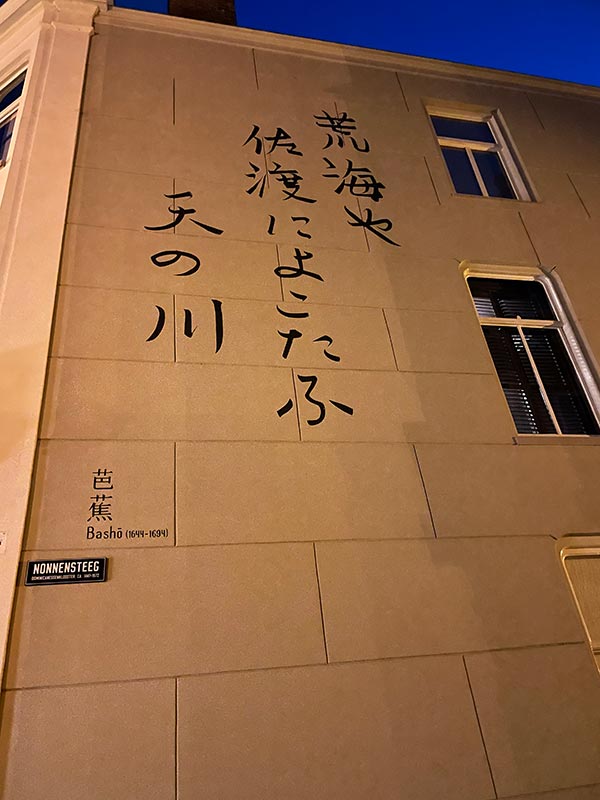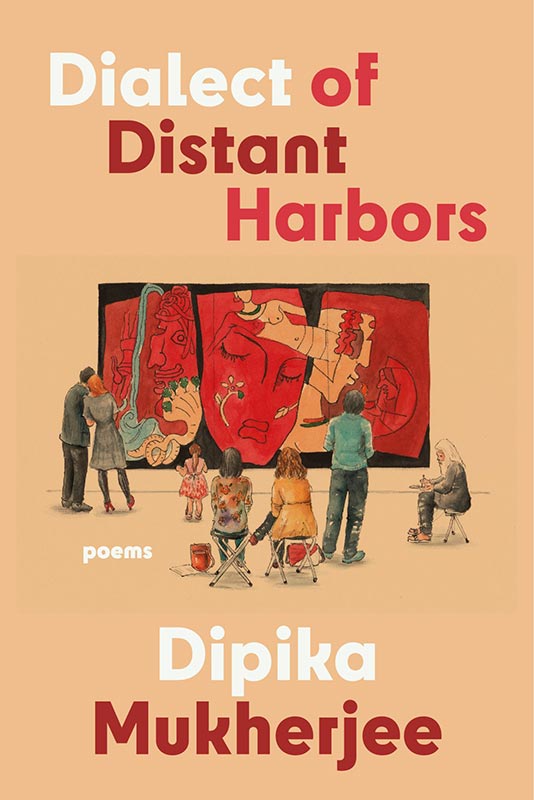Academic Work and Creative Writing
Back in 2007, while on a fellowship at the International Institute of Asian Studies in Leiden, I used to frequent the Kern Library with its extensive collection on Indology. This library has now been moved and merged into the main University of Leiden Building. In 2007, however, it was housed at the Nonnensteeg, where the nuns once prayed in this oasis of tranquility in the middle of a botanical garden. Iron trellised staircases led to a maze of books, the laden shelves bordered by ancient Tibetan tankhas displayed on the walls.
In this magical treasure house, I chanced upon my first sari-covered book, published by the Writers Workshop in Calcutta. I was astonished by the beauty of the book; the jewel-bright sari cover bordered by a faint line of green and white embroidery stood out from the other beige and bland spines in a line. Inside the cover, a table of contents written in flowing calligraphic script. I recognized at once that although this book was exceptionally beautiful, it was also rough around the edges, the paper thinner than usual. I would later learn that these books had been hand-printed and handcrafted since 1958, when the press had been founded by a visionary P. Lal in Calcutta (now Kolkata), who would go on to publish the early works of the towering figures of Indian writing in English like Nissim Ezekiel, Kamala Das, Ruskin Bond, A K Ramanujan, Adil Jussawalla, Keki Daruwalla, Jayanta Mahapatra, Meena Alexander, Agha Shahid Ali, Chitra Divakaruni, and Vikram Seth, among others.
I immediately wrote to P. Lal. He wrote back, inviting me to submit my work. He explained that the criteria for selection were high imaginative awareness and mature technique. With the arrogance of a newbie writer with a smattering of poetry and prose published in journals but no books to my name, I decided that I would not submit my work to a small publishing house in India where English was a second language, but aim for a much larger readership. In 2003, I had been a resident at Centrum in Port Townsend, within walking distance of the Copper Canyon Press, and I had fallen in love with the Copper Canyon broadsides and the poetry of Reetika Vazirani. I decided to submit my work exclusively to North American and British publishers.
I was lucky with my first poetry chapbook, The Palimpsest of Exile. It was picked up by Rubicon Press in Canada in 2009 and my editor, an acclaimed poet in her own right, treated my inchoate words with a love that bordered on reverence. The Japanese flyleaf matched the flower on the cover exactly, and the finished product was exquisite.

Poem by Matsuo Bashō (1644-1694), Nonnensteeg, Leiden
But I kept seeing the Writers Workshop books everywhere, and delighting in their difference. As the press went into its sixth decade of existence, I finally realized the value of being a part of the literary history of India, and started the process of qualifying for my own handloom sari-bound volume of poetry, with exquisite calligraphy inside. P Lal had passed on, but his son, Ananda, published The Third Glass of Wine in 2015.
Leiden, in a lot of ways, laid the seeds for the publication of my books of poetry as well as my works of prose. It is an old and erudite city filled with wall poems in many languages. The poem painted on the wall outside my office ended with There's no time. Or is there nothing but time? This is an ancient town that looks exactly the same in the paintings from the seventeenth and eighteenth century that hang in the museums; a city so impossibly beautiful, so stilled in time, that it spoils you for other places. From my office at the Nonnensteeg, one window looked down into a narrow alley so picturesque that I had to research whether it was the same alley in Vermeer’s famous painting (it wasn’t).
Since 2007, I have been back to the IIAS multiple times, to complete an academic manuscript as well as talk about my creative writing. It is a place of unfettered inspiration, and may it always continue to be so.

Cover of the poetry collection Dialect of Distant Harbors by Dipika Mukherjee. (CavanKerry Press, 2022)